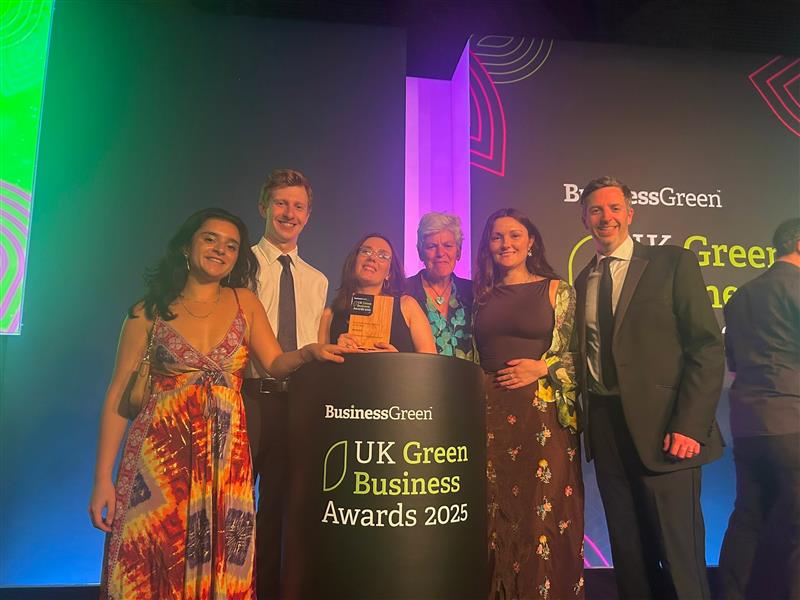Sustainable palm oil: where are we at?

If you’ve been watching Seven Worlds One Planet, you’ve probably heard Sir David Attenborough’s call to action urging people to support sustainable palm oil.
“The balance between our needs and conservation is hard, but we can offer a vital lifeline for our forest relatives. We may be able to protect them through simple choices, like buying products made with deforestation-free, sustainable palm oil from companies that support local people, using existing plantations, without cutting down more rainforest.” Sir David Attenborough
Palm oil: a controversial ingredient
Found in about 50% of everyday products, palm oil is one of the world’s most controversial ingredients, and often singled out as the villain in the deforestation debate. While there’s no doubt that unsustainable practices have led to widespread deforestation and human rights violations in growing regions, we should remember that palm oil is a crop – one that can be produced in an environmentally and socially responsible manner.
Following the launch of Iceland’s Rang-tan campaign last year, we released this blog highlighting why boycotting palm oil is not the answer and how we can all play a role in making it sustainable.
In November 2018, the palm oil industry took a significant step forward when members of the Roundtable on Sustainable Palm Oil (RSPO) adopted a new, stringent standard banning deforestation, new planting on peatland and strengthening human rights in oil palm.
One year on, as RSPO’s 17th global event in Bangkok (RT17) draws to a close, Greenhouse reflects on key takeaways from the conference.
Supporting independent smallholders with sustainable production
As producers of 40% of the world’s palm oil, smallholder farmers are key to building a sustainable palm oil industry. Recognising it is more challenging for independent smallholders to comply with the P&C 2018, the RSPO has developed a separate standard that takes into consideration the challenges faced by these farmers, whilst upholding the sustainability requirements.
The RSPO Independent Smallholder Standard was adopted by members at the RSPO General Assembly following the RT17 conference.
A ‘shared responsibility’ in making sustainable palm oil the norm
The RSPO envisions an industry where all companies, from supply chain actors to NGOs and investors, assume a shared responsibility to strengthen sustainable palm oil production and sourcing.
While the RSPO Principles & Criteria apply to palm oil producers, transforming the industry requires similar efforts from the downstream market. The latest RSPO Impact Update reveals a gap between sustainable palm oil production and demand; total certified production area cultivated by RSPO members increased by 23%, but overall demand only increased by 2%.
“We must incentivise and reward the growers for their hard work in implementing these stringent standards. It’s time to make the next pledge and collectively work to drive demand for certified sustainable palm oil.”
Darrel Webber, CEO, RSPO
One of the key initiatives discussed at RT17 was the launch of a new set of requirements developed by the RSPO Shared Responsibility Task Force. One of its rules, now in a pilot phase, requires member traders and processors, consumer goods manufacturers and retailers to increase their uptake of certified sustainable palm oil year on year.
Empowering consumers to make informed decisions
Since the adoption of the RSPO P&C 2018, we’ve seen a more balanced discussion and rising interest for the type of palm oil used by brands in their daily products. Consumers have been reaching out to their favourite brands on social media, asking them if the palm oil they use is from sustainable sources and demanding clear labelling. Incidentally, the RSPO Impact Update 2019 shows a 25% increase in companies getting an RSPO trademark license.
While social and environmental NGOs play a crucial role in highlighting issues and engaging consumers, they can also be a fantastic channel to educate a wide audience and help consumers make informed purchase decisions. At the start of RT17, a group of 47 zoos and conservation organisations showed their support for sustainable palm oil and the industry called upon NGOs to utilise their influence to communicate about the positive impacts of sustainable palm oil compared with a boycott.
Are you interested in sustainable palm oil? Catch highlights from the RSPO 17th global event and join the conversation at #RT17.
Greenhouse works with organisations building more sustainable supply chains in commodities to address the climate crisis. Take a look over some of our previous campaigns that had a real impact in palm oil, sugarcane and cotton.
If your organisation is implementing solutions for sustainable commodities and looking for help to get the word out, please get in touch with the Greenhouse team on 0117 214 1250 or email info@greenhousepr.co.uk


